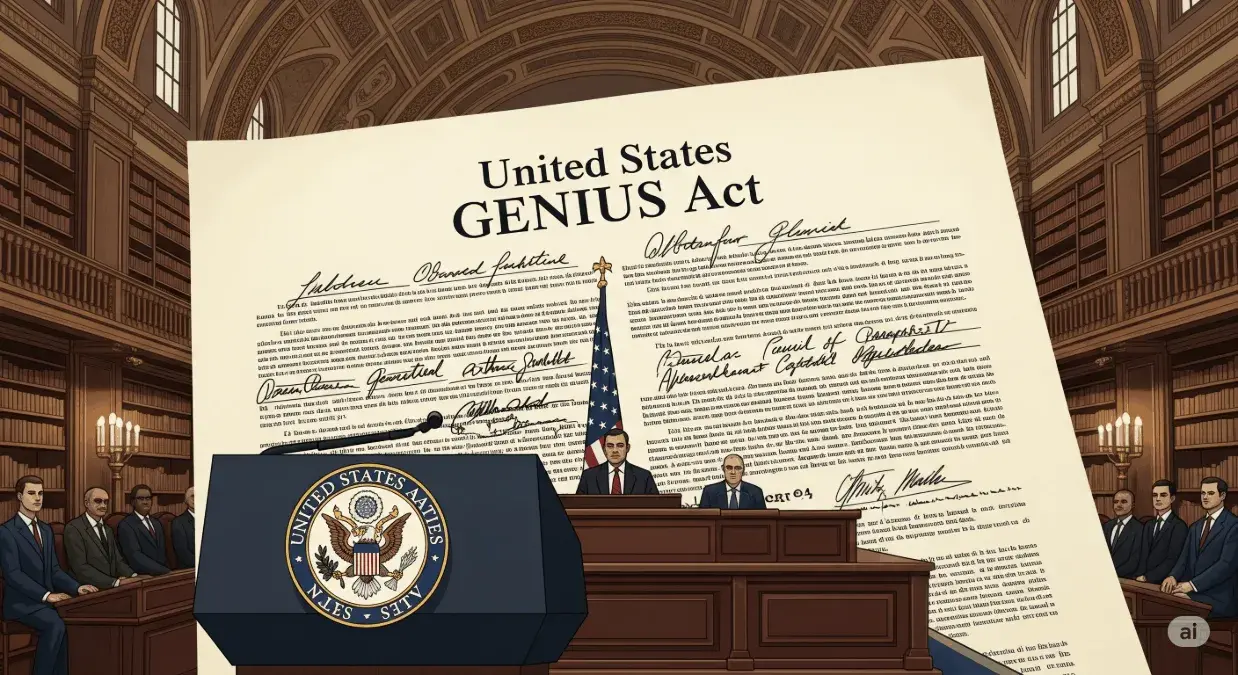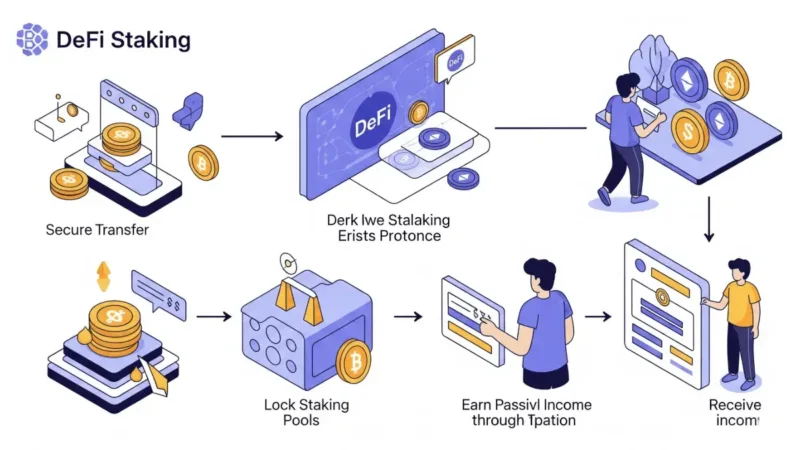The Dawn of a New Era: GENIUS Act Signals US Leadership in Crypto

The United States has taken a monumental step towards solidifying its position as a global leader in the digital economy with the approval of the GENIUS Act. This landmark legislation, the first major national regulatory framework for digital currencies in over a decade, centers on stablecoins, demanding they be fully backed by reliable assets such as the U.S. dollar. The sentiment across the industry is overwhelmingly positive, with prominent figures highlighting its potential to foster consumer trust, modernize financial technology, and accelerate innovation.
At the forefront of this celebratory chorus is Ripple CEO Brad Garlinghouse. Taking to social media, Garlinghouse expressed his profound excitement, hailing the GENIUS Act as an unequivocal signal of the U.S.’s serious commitment to leading the charge in digital finance. He underscored the historical significance of this moment, noting that the last substantial financial regulation was enacted a staggering fifteen years ago. This new legislative stride, according to Garlinghouse, provides a much-needed and long-overdue update for an industry that has not only evolved rapidly but has also demonstrated immense potential to reshape the global financial landscape. The passage of this act signifies a proactive approach by U.S. policymakers to embrace rather than stifle the burgeoning world of digital assets.
Industry Leaders Applaud Regulatory Clarity
The enthusiasm extends far beyond just one company. Stuart Alderoty, Ripple’s Chief Legal Officer, echoed Garlinghouse’s sentiments, welcoming the legislation as a crucial development that finally delivers straightforward guidelines for stablecoins and other digital assets. Alderoty believes that this newfound clarity will instill confidence in both innovators—who can now operate with reduced legal uncertainties—and everyday Americans, empowering them to explore and expand into digital finance with greater assurance. The clear framework is expected to unlock new opportunities for development and adoption, paving the way for a more robust and accessible digital financial ecosystem.
The founder of TRON, Justin Sun, also weighed in, describing the GENIUS Act as a practical guide essential for responsible development within the crypto sphere. Sun emphasized that properly backed stablecoins are not merely a regulatory compliance measure but a fundamental necessity for striking a delicate balance between fostering innovation and safeguarding consumer interests. This perspective highlights the critical role of stablecoins as a bridge between traditional finance and the decentralized world, underscoring the importance of their stability and transparency.
Paul Grewal, Chief Legal Officer at Coinbase, further articulated the broader economic implications of the stablecoin provisions. Grewal posited that these regulations could play a pivotal role in preserving and even strengthening the U.S. dollar’s influence on a global scale. With billions of dollars already flowing through dollar-backed stablecoins worldwide, he argued that clear, comprehensive rules will inevitably increase their reach and, crucially, safeguard the country’s economic interests in an increasingly digital era. This strategic move positions the U.S. to leverage the digital asset revolution to reinforce its financial sovereignty and leadership.
Stablecoins: A Path to Dollar Strength and Global Leadership
The journey of the GENIUS Act to the President’s desk marks a significant shift in the national narrative around cryptocurrencies. Notably, President Trump, who had previously expressed skepticism about digital currencies, has publicly altered his stance, now advocating for the U.S. to become the undisputed global hub for digital assets. This paradigm shift at the highest level of government underscores the growing recognition of crypto’s importance and potential.
As the GENIUS Act awaits the President’s signature, industry insiders are brimming with anticipation. They foresee the legislation unlocking a torrent of new products and services, further strengthening the appeal and utility of dollar-backed tokens, and sending an unequivocal message to the global community: the United States intends to lead, not lag, in the realm of financial innovation. This proactive approach is expected to attract investment, talent, and technological advancements, firmly cementing the U.S. at the forefront of the digital financial revolution.
Addressing Concerns: Balancing Innovation with Safety
While the overwhelming sentiment is one of optimism, the GENIUS Act is not without its detractors. Some critics have voiced concerns that allowing tech companies to issue stablecoins could introduce undue risk into the financial system, particularly if regulatory oversight proves to be insufficient. These cautionary voices highlight the inherent complexities of integrating novel financial instruments into existing frameworks and the importance of robust mechanisms to prevent systemic vulnerabilities.
Despite these legitimate concerns, the bill’s staunch supporters remain confident. They believe that the implemented “sensible guardrails” will empower the U.S. to reap the profound benefits of blockchain progress—such as increased efficiency, transparency, and accessibility—without compromising financial stability or consumer safety. The legislation is designed to strike a delicate balance, fostering innovation while simultaneously mitigating potential risks through clear regulatory guidelines and oversight. The ongoing dialogue between proponents and critics will likely shape the future iterations of crypto regulation, ensuring a dynamic and adaptive approach to this rapidly evolving sector.
Stay informed, read the latest crypto news in real time!
The GENIUS Act represents more than just a piece of legislation; it symbolizes a commitment to embracing the future of finance, fostering a climate of innovation, and securing America’s economic leadership in the digital age. The collective endorsement from figures like Ripple CEO Brad Garlinghouse and other industry giants underscores the magnitude of this legislative achievement and its potential to reshape the global financial landscape for decades to come.





